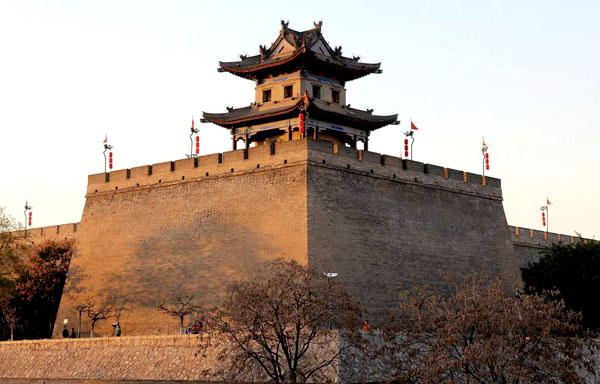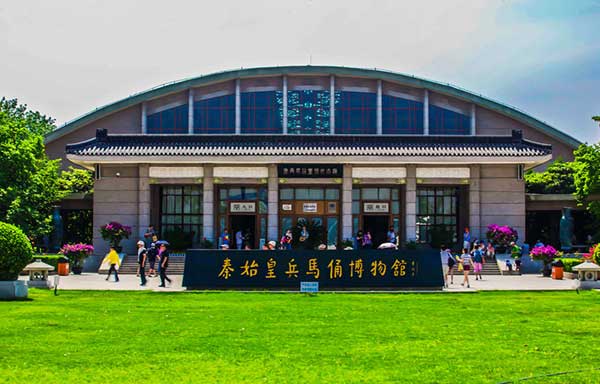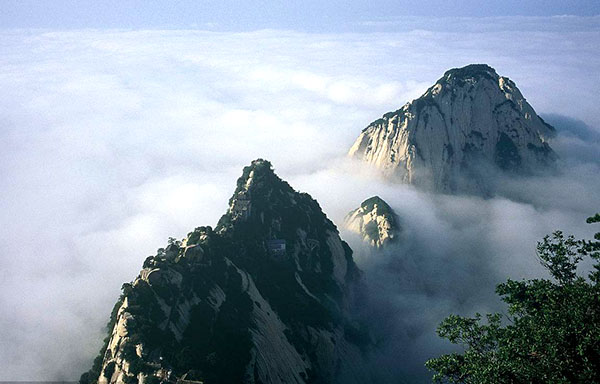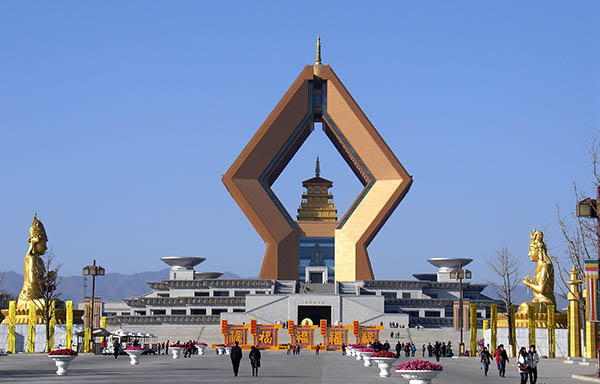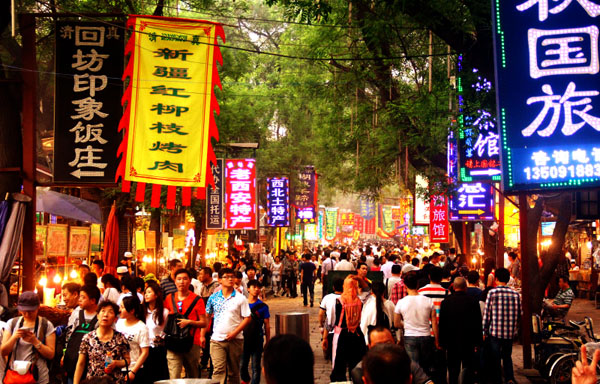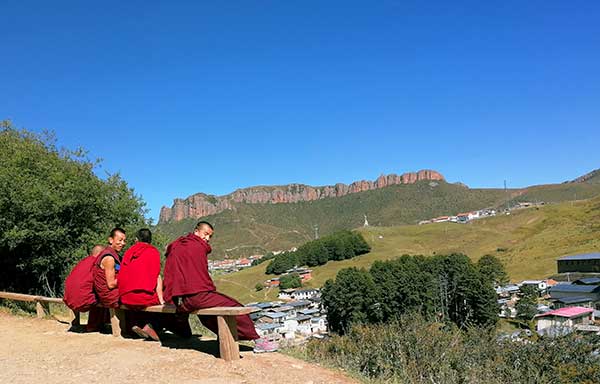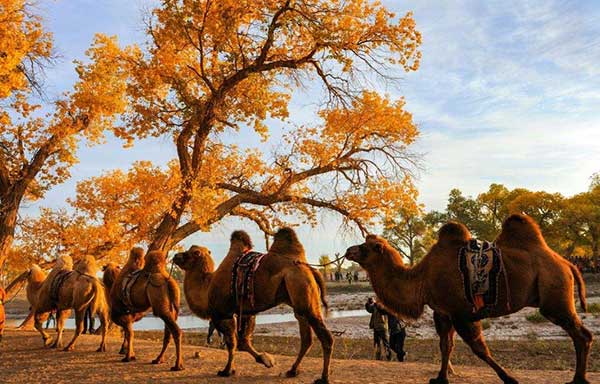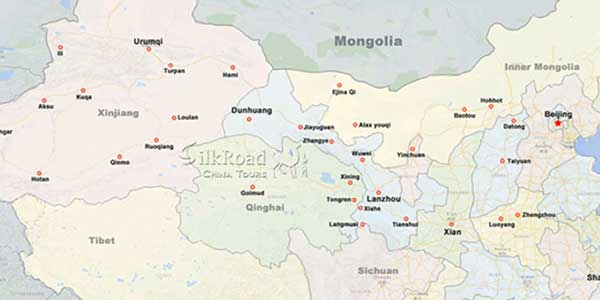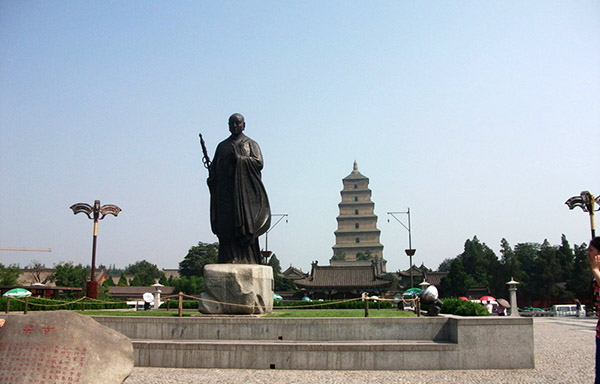 Big Wild Goose Pagoda is located in Xian city and stands among the complex of “Da Cien Temple"The Pagoda was constructed in Yong Hui three years of Tang dynasty (652AD) to store the Buddhist scriptures brought to China by hierarch Xuanzang. The Pagoda was originally five layers, affix to nine, after many times of change in height, finally fixed at seven layers as we see today. The pagoda is 64.517 meters high and has bottom side length of 25.5 meters. It is rated as a National Key Cultural Relic Preserve as well as an AAAA Tourist Attraction. On June 22, 2014, the pagoda was added to the World Heritage List, together with other sites along the ancient Silk Road.
Big Wild Goose Pagoda is located in Xian city and stands among the complex of “Da Cien Temple"The Pagoda was constructed in Yong Hui three years of Tang dynasty (652AD) to store the Buddhist scriptures brought to China by hierarch Xuanzang. The Pagoda was originally five layers, affix to nine, after many times of change in height, finally fixed at seven layers as we see today. The pagoda is 64.517 meters high and has bottom side length of 25.5 meters. It is rated as a National Key Cultural Relic Preserve as well as an AAAA Tourist Attraction. On June 22, 2014, the pagoda was added to the World Heritage List, together with other sites along the ancient Silk Road.
As for the reason why it is called Big Wild Goose Pagoda, there is a legend. According to ancient stories of Buddhists, there were two branches, for one of which eating meat was not a taboo. One day, they couldn't find meat to buy. Upon seeing a group of big wild geese flying by, a monk said to himself: 'Today we have no meat. I hope the merciful Bodhisattva will give us some.' At that very moment, the leading wild goose broke its wings and fell to the ground. All the monks were startled and believed that Bodhisattva showed his spirit to order them to be more pious. They established a pagoda where the wild goose fell and stopped eating meat. Hence its name.
Daci'en Temple is the home of Big Wild Goose Pagoda. In 648, the temple is built to commemorate the dead virtuous queen, for which the status and scale far exceeded all others. Today, with an area of 12.5 acres (50,738 square meters), one seventh of the original area, it still retains its grandeur.
Before the temple, there stands a statue of hierarch Xuanzang, the meritorious hierarch. With guarding lions at both sides of the gate, the temple seems stately for lions were said to function as talismans. Entering the temple you will see two buildings - Bell Tower in the east and Drum Tower in the west. Along the central axis are arranged the Hall of Mahavira, Sermon Hall, Big Wild Goose Pagoda, and the Hall of Xuanzang Sanzang.
Gallery
Attractions in the area
Related Tours
General Information
Alias: Dayan Pagoda
Loc: In Xian City
Entrance: 50 RMB
Open Time: 8:00 - 17:00
Relevant blogs
-
How did the name of Tianshui in Gansu come about?
The name Tianshui is very pleasant to the ear, and it reminds one of that exquisitely beautiful verse, "After getting drunk, one doesn't know if the sky is in
-
The 8th Silk Road Hotel Festival was successfully held i
On December 27th, the "8th Silk Road Hotel Festival" grandly opened at the Yujing International Hotel in Zhangye. This hotel festival gathered industry experts,
-
The Karez Irrigation System in Turpan has been selected
On September 3rd, at the 75th Executive Council Meeting of the International Commission on Irrigation and Drainage held in Sydney, Australia, the 2024 (11th bat
-
What is the connection between "dragons" and "snakes
In traditional Chinese culture, the snake has a dual identity of auspiciousness and danger. Ancient people believed that the snake not only possesses divine cha
-
Endangered Przewalski's Horses Spotted at Dunhuang Yume
<p>In early February, a group of special "visitors"—the Przewalski's horses—appeared at the Dunhuang Yumen Pass scenic area in Gansu Province, a U
-
The Fourth Dunhuang Cultural Tourism Supplier Conference
On the morning of February 18th, the Fourth Dunhuang Cultural Tourism Supplier Conference in Northwest China commenced at the Dunhuang International Convention






